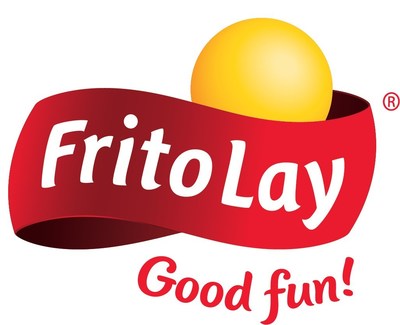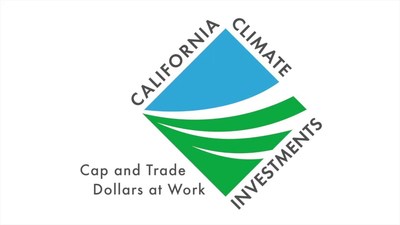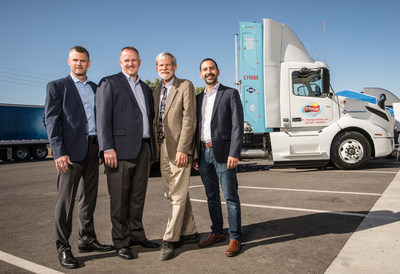March 25, 2021
PLANO, Texas, Oct. 3, 2019 /PRNewswire/ -- Furthering PepsiCo's mission to reduce its absolute greenhouse gas (GHG) emissions by 20 percent by 2030, Frito-Lay – a division of PepsiCo, Inc. (NASDAQ: PEP) – aims to replace all of its existing diesel-powered freight equipment with zero-emission (ZE) and near-zero emission (NZE) technologies at its Modesto, Calif. manufacturing site. The Modesto, Calif. Zero- and Near Zero-Emission Freight Facility Project will transform the 500,000-square-foot site – one of Frito-Lay's largest in the U.S. – into an industry-leading showcase for environmentally sustainable manufacturing, warehousing and distribution.
The project is a first-of-its-kind for PepsiCo and Frito-Lay and is part of California Climate Investments (CCI), a statewide program that puts billions of Cap-and-Trade dollars to work reducing greenhouse gas emissions, strengthening the economy, and improving public health and the environment — particularly in disadvantaged communities. CCI funding is awarded by several state agencies including the California Air Resources Board (CARB).
"Frito-Lay is continuously looking for ways to reduce our environmental impact," said Michael O'Connell, vice president of supply chain, PepsiCo. "The Modesto project is indicative of our commitment to sustainable business practices that lead to innovation, increased productivity, operational excellence and business growth. We are grateful for the support of San Joaquin Valley Air Pollution Control District, CARB and CCI in making this important project happen. We hope this work will become an operating model for all of our facilities across the U.S., and that we act as the catalyst to accelerate adoption of alternative fuel vehicles across the industry."
Expected to be completed in 2021, the $30.8 million Modesto project will integrate an array of commercially available and pre-commercial ZE and NZE technologies in numerous applications, among them fleet vehicles and supporting infrastructure, on-site renewable energy generation and energy storage systems. The Modesto project will also contribute to industry knowledge of the emerging technologies by funding data collection and reporting of the project results.
The project is the result of a partnership with the San Joaquin Valley Air Pollution Control District (SJVAPCD), which received a grant from CCI – matched by investments from Frito-Lay and American Natural Gas (ANG), as well as in-kind contributions from Café Coop – to support the Modesto sustainability initiative.
Frito-Lay has robust capabilities training for the Modesto site's existing associates to learn and operate the new, high-tech fleet equipment. The company also has a rich history of sustainability in its manufacturing and distribution operations and has delivered products for over 300 million miles with alternative fuel trucks to-date. Frito-Lay is eager to further advance its sustainability efforts with this at-scale initiative.
"Bravo to Frito-Lay for its commitment to improving air quality and reducing greenhouse gas emissions as an integral part of their business model," said Alexander Sherriffs, M.D., CARB board member and San Joaquin Valley Air Pollution Control District board member. "These are the goals of CCI, putting Cap-and-Trade dollars back into communities to improve health, promote economic development and address climate change. Thank you, Frito-Lay, for being leaders and showing other businesses in our state and beyond how to thrive when good public health through clean air and climate solutions is a company value."
The current ZE and NZE project is a continuation of the Modesto facility's widespread sustainability initiatives and commitment to environmental stewardship. The Modesto site sends less than 1 percent of its waste to landfill and leverages improved technologies.
PepsiCo's sustainability goals support the United Nations' 2030 Agenda for Sustainable Development and call to combat climate change and its impacts. This project marks another important milestone as PepsiCo works toward the goal of reducing absolute GHG emissions across its value chain.
Contributors to the Zero- and Near-Zero Emission Freight Facility Project includes: ANG; BYD Motors LLC; Café Coop; CALSTART; University of California, Riverside CE-CERT; ChargePoint; Crown, Gladstein Neandross & Associates (GNA); Meritor; Peterbilt; Project Clean Air; SJVAPCD; Tesla and Volvo.
For more information about Frito-Lay and PepsiCo sustainability initiatives, visit Fritolay.com or PepsiCo.com.
About Frito-Lay
Frito-Lay is the $16 billion convenient foods division of PepsiCo, Inc. (NASDAQ: PEP), which is headquartered in Purchase, NY. Learn more about Frito-Lay at the corporate website, http://www.fritolay.com/, and on Twitter http://www.twitter.com/fritolay.
About PepsiCo
PepsiCo products are enjoyed by consumers more than one billion times a day in more than 200 countries and territories around the world. PepsiCo generated more than $64 billion in net revenue in 2018, driven by a complementary food and beverage portfolio that includes Frito-Lay, Gatorade, Pepsi-Cola, Quaker and Tropicana. PepsiCo's product portfolio includes a wide range of enjoyable foods and beverages, including 22 brands that generate more than $1 billion each in estimated annual retail sales.
Guiding PepsiCo is our vision to Be the Global Leader in Convenient Foods and Beverages by Winning with Purpose. "Winning with Purpose" reflects our ambition to win sustainably in the marketplace and embed purpose into all aspects of the business. For more information, visit www.pepsico.com
About California Air Resources Board (CARB)
CARB is the lead agency in California for cleaning up the air and fighting climate change to attain and maintain health-based air quality standards. Its mission is to promote and protect public health, welfare, and ecological resources through the effective reduction of air and climate pollutants while recognizing and considering effects on the economy.


SOURCE Frito-Lay North America



